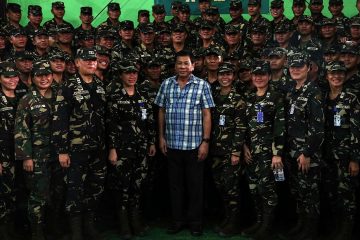
Why Strengthening the Rule of Law Matters in Transitional Justice: Lessons from Colombia
Since the end of the Cold War, Transitional Justice (TJ) has become the dominant framework informing peacebuilding when wars end. Each year, countries establish TJ systems to come to terms with a violent past. However, TJ rarely lives up to its promises. Criticism of TJ often focuses on its (in)ability to heal the wounds of violence, foster forgiveness and reconciliation in divided societies, or deliver restorative justice for both the victims and victimisers of a conflict. In this piece, I shed light on an often-overlooked limitation of TJ: its disregard for the Rule of Law (RoL). RoL, understood as a principle of governance by which law governs societies, is often seen to belong outside the remit of TJ. This is …

Southeast Asia in Dark Times: Philippines’ Martial Law and Indonesia’s Mob Rule
The future of democracy and the rule of law in Southeast Asia is in peril. While fundamentally different in many ways, current political developments in the Philippines and Indonesia showcase an erosion of fundamental rights, respect of differences and due process. Confronted by terrorism, drugs and illiberal groups, how willing and able are the governments of the Philippines and Indonesia to balance national security prerogatives and popular demands with respect for civil liberties? A Spiral of Murder in the Philippines Under the leadership of President Rodrigo Duterte, the Filipino government embraced “martial law” to wage war on drugs, and now against militants aligned with the Islamic State. The government’s actions have reportedly led to widespread human rights violations and extra-judicial …









